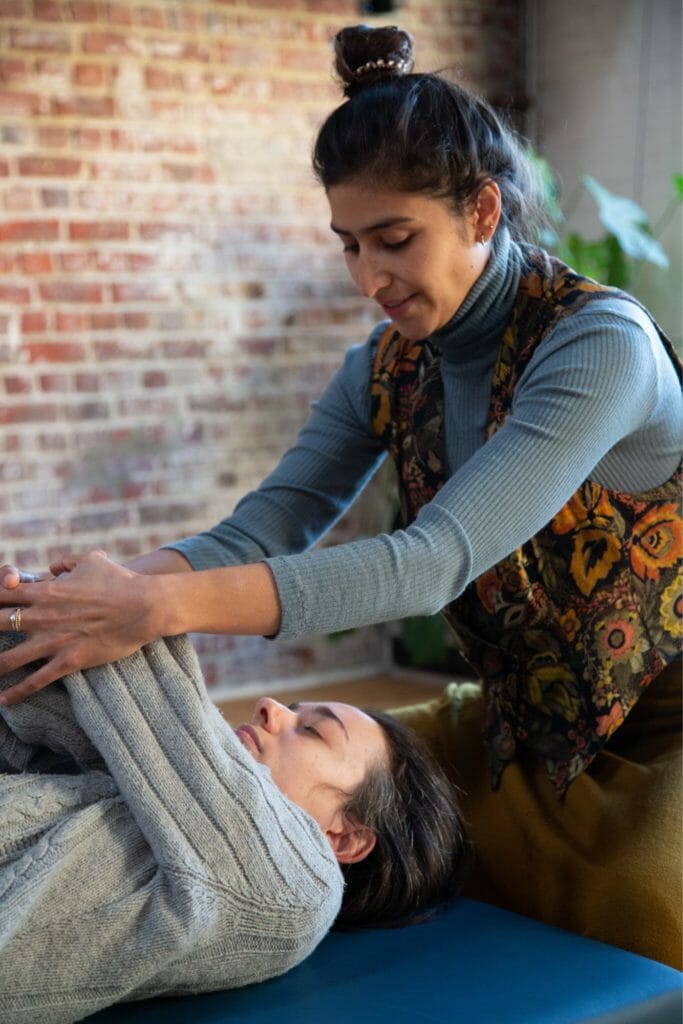Creating the conditions For your own learning
Employing their hands with a gentle attentive touch, the Feldenkrais practitioner directs the student towards discovering novel movement patterns or refining pre-existing ones. The student, whether lying comfortably on a table, sitting, or standing, can be assisted by various supports like cushions, rollers, mats, and foam to augment the learning journey.
The individualised lessons can be tailored for dancers aiming to refine their movement patterns, individuals recovering from accidents seeking to regain their physical abilities, office workers looking to alleviate discomfort and improve posture, as well as musicians, athletes, children with developmental issues. Moreover, it is a valuable practice for anyone seeking to embrace a more expansive and fulfilling way of living.
Touch & Transform
In these personalized, non-verbal lessons, trust, safety, and attentive listening are fundamental. The session centers around the person's capacity for learning and strives to create the ideal conditions for this learning to unfold. Our approach goes beyond touching the body; we prioritize connecting with the person as a whole.
-
Communication
Touch serves as a direct, non-verbal form of communication between the practitioner and the client. It conveys information about the client's current patterns of movement and provides feedback for changes.
-
Guidance
Through skilled and sensitive touch, the practitioner can guide the client towards new ways of moving. They can introduce new movement patterns directly into the client's nervous system, bypassing the need for conscious understanding.
-
Awareness
Gentle, focused touch can heighten the client's awareness of their own body. It can highlight areas of tension, discomfort, or inefficiency that the client may not have been consciously aware of.
-
Safety and Comfort
The use of non-invasive, respectful touch helps to establish a safe and comfortable environment for the client. This is essential for learning, as the nervous system is more likely to adopt new patterns when it feels safe.
-
Facilitating change
The practitioner uses touch to facilitate the reorganization of the client's neuromuscular patterns. This is achieved by creating conditions where the nervous system can discover and adopt more efficient ways of moving.
-
Global approach
Touch allows the practitioner to approach the individual as a whole, recognizing that changes in one area of the body can affect the entire system. This helps in addressing the overall psychological and emotional patterns through movement and posture.
Practitioners With a passion
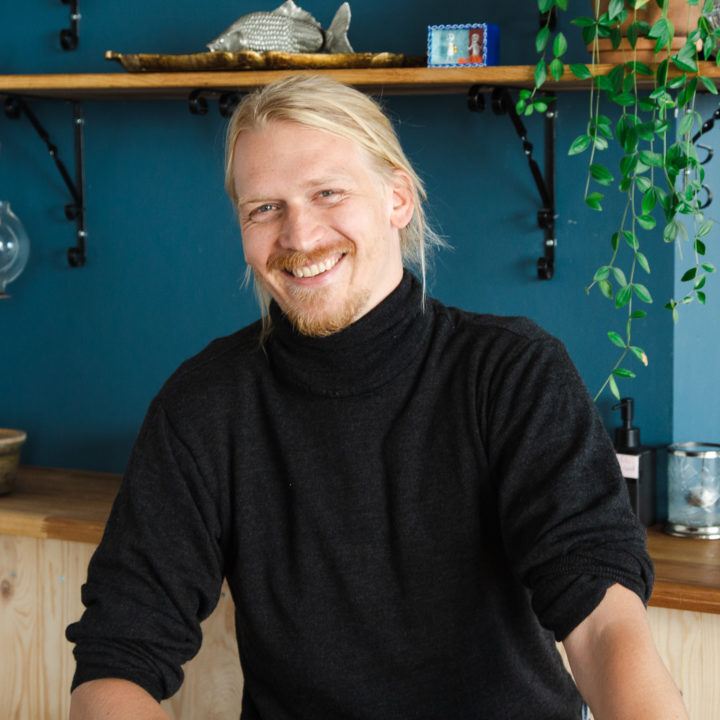
Nikos Appelqvist Feldenkrais Practitioner
Of English and Danish origin, I certified in the Feldenkrais Method® with the Cantal 1 training, in France 2016-2020. In 2021, I co-founded the Forest Lighthouse Somatic Education Centre in Brussels.
My passion for the Feldenkrais method and languages led me to be co-organiser and translator for training courses in Brussels and to translate the best-selling book "A busy persons guide to the Feldenkrais method" into French for the first time. I give weekly group lessons and individual sessions of the Feldenkrais method at the centre in Brussels.
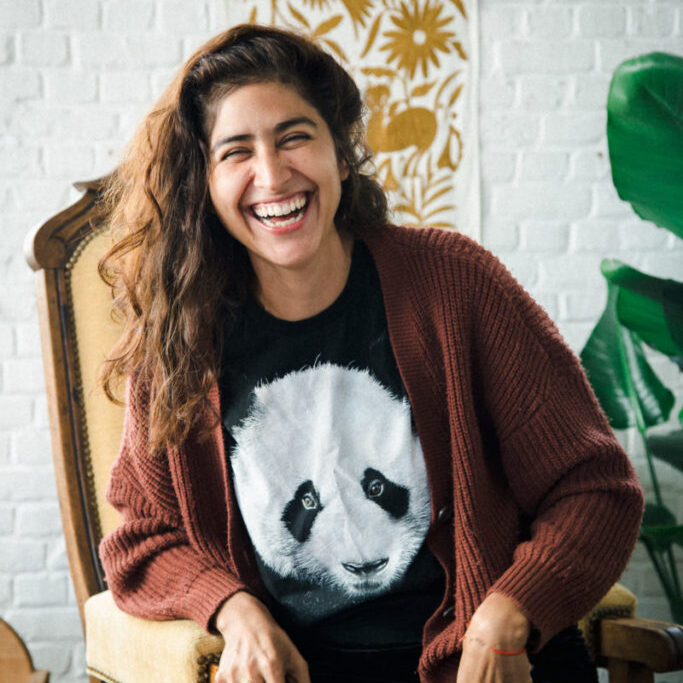
Betzabel Falfan Feldenkrais Practitioner
Originally from Mexico, I trained as a dancer and actress. At the centre, I teach classical Indian Sattriya dance and the Feldenkrais Method.
I certified in the Feldenkrais Method® at Cantal 1, France 2016-2020. I have been co-organising and administering Feldenkrais professional training programmes in Belgium since 2019 and accompanying students there. I co-founded "Forest Lighthouse", Centre for Somatic Education, in Brussels in 2021 and continue to train in a somatic approach to learning.
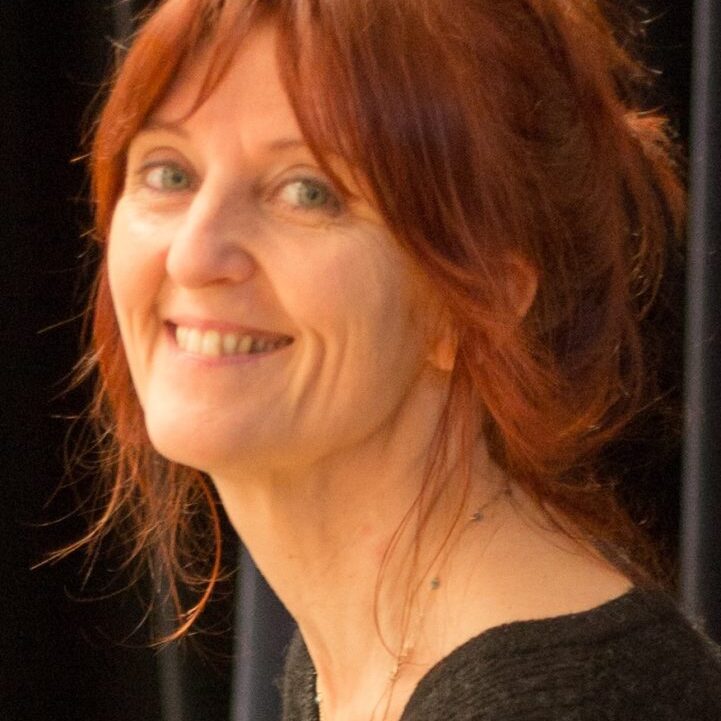
Pia Appelquist Practitioner and Feldenkrais Assistant
I graduated from Myriam Pfeffer's training course in Paris in 2011 and became an assistant trainer in 2019. Originally from Denmark, I have lived and worked in France since 1990.
I have initiated and actively contributed to the creation of innovative arts education for school and teacher training institute programmes. I co-founded the Beliashe Institute - Centre for the Arts and Human Potential in France.
I co-organise training courses in the Cantal (France) and work as an assistant in the Cantal and in Brussels.
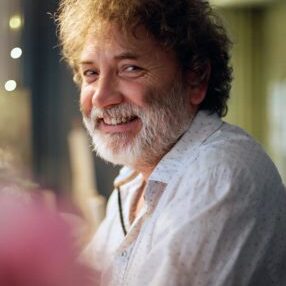
Yvo Mentens Feldenkrais Practitioner and Candidate Trainer
Originally from Belgium, I was introduced to the Feldenkrais Method through my work in physical theatre over 25 years ago. I was certified in Paris in 2009 as a professional practitioner under the guidance of Myriam Pfeffer, and have been an assistant trainer since 2016.
I teach at the Conservatoire National d'Art Dramatique de Paris CNSAD, where, in addition to theatre, I have set up a major Feldenkrais teaching programme with PCM and IFs for students.
For several years I was an active member of the board of directors of the Guilde française de Feldenkrais, of the ETC Council of Eurotab, and I was vice-president of the International Feldenkrais Federation IFF.

